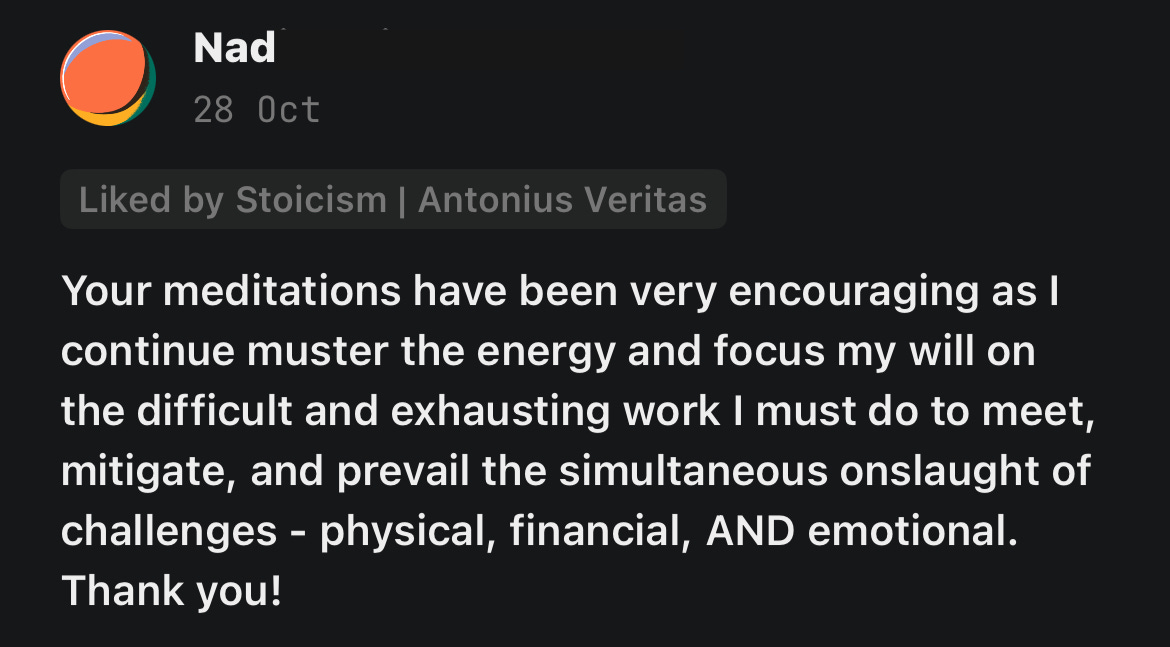Lead to Win VII. How to De-escalate Situations
Lead through high-pressure situations, build trust, and earn undying loyalty from your team.
The ‘Lead to Win’ section is a companion for The Stoic Manual to help you become wealthier, happier & more powerful through the best strategies and tactics to succeed at leading in your workplace, family, relationships, and business—by Dr. Antonius Veritas. Complement this with the ‘Neuroscience-based Tools’ and the Le Monde Élégant social skills section.
P.S: Skip to the bottom for actionable tools to de-escalate any situation.
The hallway was quiet, save for the faint hum of fluorescent lights.
Dr. Ross sat at his desk, skimming patient details, when the door to his office swung open.
Ellen, the nurse in charge, stepped inside, her face flushed.
“The instruments for theatre 3 aren’t here,” Ellen said, her voice sharp.
“I’ve followed up twice with supply chain this week, and now the morning procedure is delayed. Again.”
Ross glanced up, his pen hovering over a chart.
His pulse quickened, but he kept his expression steady.
“What do you want me to do about it, Ellen? Call supply chain for you? That’s your responsibility.”
Ellen’s mouth tightened.
“We can’t do our jobs if they don’t do theirs.”
“Then take it up with admin.”
Ross’ voice was clipped, impatient.
“I can’t keep stopping what I’m doing to solve everyone’s problems.”
He turned back to his chart, signaling the conversation was over.
Ellen stood there for a moment.
“Got it,” she said, her tone flat, before turning on her heel and leaving the office.
Ross exhaled sharply, irritation swirling in his chest.
He didn’t have time for hand-holding.
If Ellen couldn’t manage her responsibilities, that wasn’t Ross’ fault.
By noon, the theatre list was in chaos.
Two procedures had been pushed back, and a patient’s family was asking questions Ross didn’t have answers to.
He leaned against the counter outside the OR, trying to piece together a solution, when he overheard voices coming from the break room.
“Why even bother telling him?” someone said.
“He doesn’t care.”
Ross froze.
“He just throws it back at you,” another voice chimed in.
“It’s like talking to a wall.”
His chest tightened.
He felt the heat of embarrassment creeping up his neck but quickly pushed it down.
They didn’t understand the pressure he was under.
He was holding this place together, making decisions every hour that no one else wanted to make.
What did they expect?
That he would drop everything and coddle them?
Still, as the afternoon wore on, the words clung to him like a second skin.
By the end of the week, things got worse.
A mishap—due to a missing piece of equipment— pushed Ross to the edge of his patience.
The tension was palpable as the team gathered for a post-op debrief.
Ellen handed Ross the equipment report, her lips pressed into a thin line.
“This could’ve been avoided if we had the right tools on time,” Ellen said, her voice low but firm.
Ross didn’t even look up.
“Then maybe next time, follow up earlier.”
A silence fell over the room.
Ross could feel the weight of the stares around him, but he didn’t lift his head.
His words hung in the air, cold and cutting, before Ellen turned and walked away without another word.
That evening, Ross sat in his car in the hospital parking lot, gripping the steering wheel.
The department felt like it was falling apart around him, but no one seemed to want to collaborate to fix it.
He thought about the nurses whispering in the break room, about the silence in the debrief, about the look on Ellen’s face when she walked out.
Everyone felt so distant lately, like they were avoiding him.
People were stopping by his office less, and when they did, their words felt clipped, almost rehearsed.
When he gave instructions during rounds, team members nodded but rarely asked questions.
He even started noticing small errors going unaddressed.
Wasn’t he doing his job?
Wasn’t this what leadership looked like—making tough decisions, staying above the drama, and focusing on the work?
But if he was doing everything right, why did it feel so wrong?
He pondered.
This is How to De-escalate Any Situation
Dr. Ross’ situation is where so many leaders find themselves: frustrated, isolated, and disconnected from their teams.
The harder they push to keep things together, to take control, the more fractured everything becomes.
The good news is, it doesn’t have to stay that way.
There’s a way to lead through high-pressure situations, build trust, and earn undying loyalty from your team.
Below, I synthesize lessons from the Samurai culture and the Ming Dynasty to achieve this ideal.
Here’s how to de-escalate any tense situation…
Are you enjoying this entry so far? ⭐️
Support the publication to read the rest and access 100+ practical insights and Mini-courses to help you apply Stoicism for a happier, wealthier life—Lead to Win, Optimize Your Health with Neuroscience-based tools & Stoic Essays.
Join 15,000+ other readers.
What my supporters are saying…







